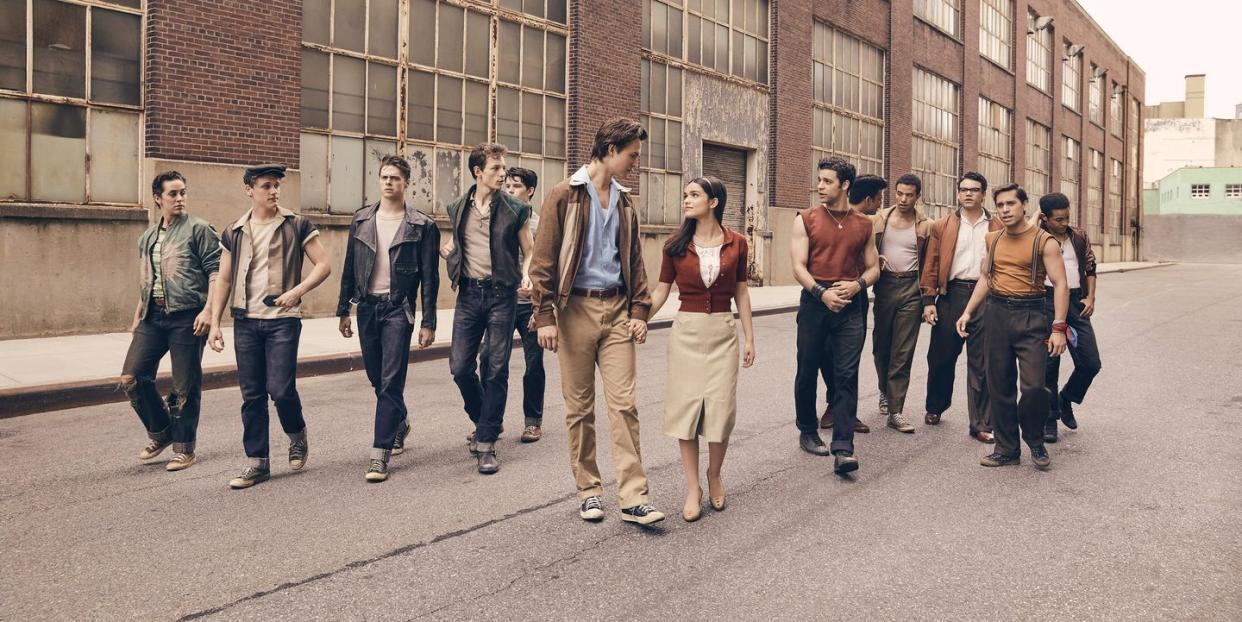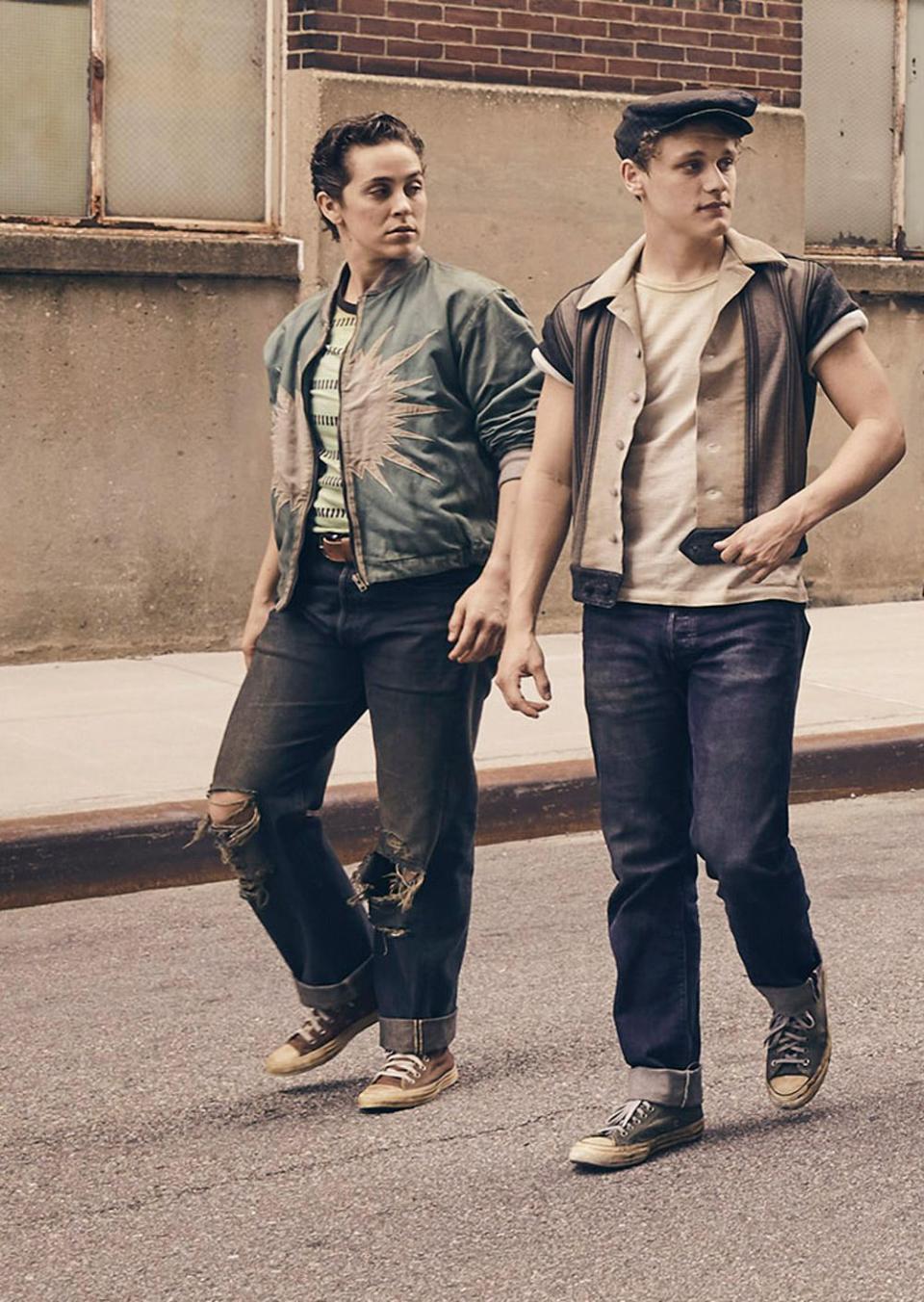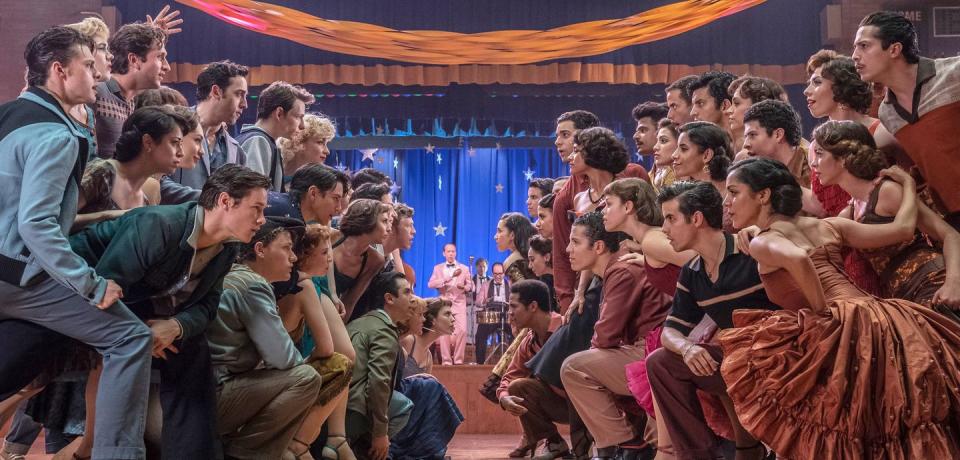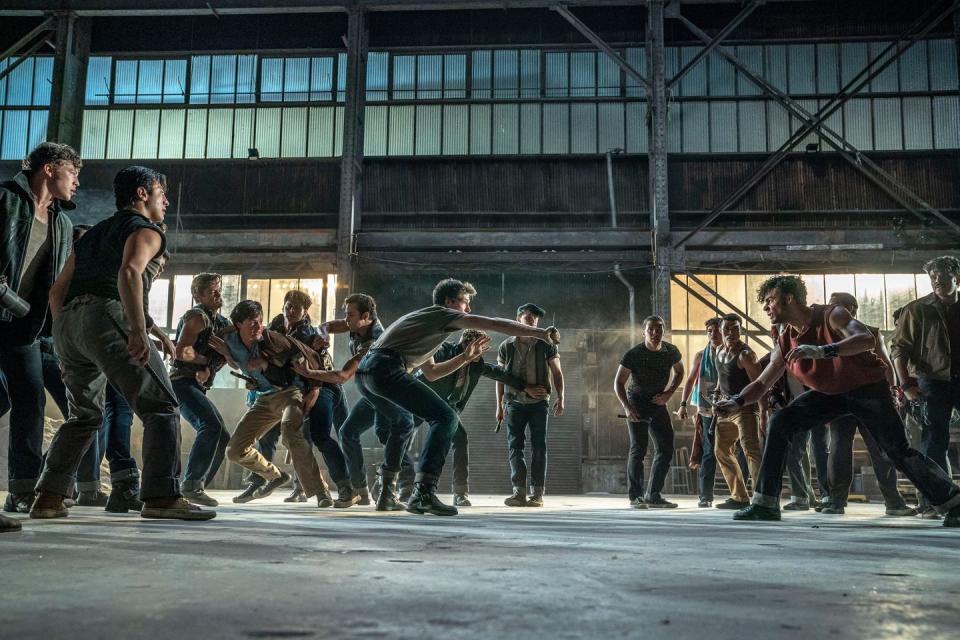The New 'West Side Story' Challenges Tropes of Trans Representation

During the early stage run of West Side Story, which has recently been remade by Steven Spielberg, a group of the Jets sang about things they thought weren't good for anything: the song was called 'Kids Ain't', and one of the Jets, named Anybodys, sang all about how "girls ain't good for anything".
The song ended on the line: "Why can't I be – big, tall, male/like everybody else?" 'Kids Ain't' would eventually be cut from the stage musical, but the lines that Anybodys sings go a long way to explaining why Spielberg's film approaches the character in a new way; one that's arguably more inclusive, while also challenging the idea of what "good" representation looks like.
To begin with, this new version of West Side Story casts non-binary actor Iris Menas, which already moves the character — initially conceived and performed as a tomboy — away from a cis reading. While 'Kids Ain't' doesn't find its way into the remake, the changes made to the script by Tony Kushner foreground both how Anybodys views themself, and the ways in which the rest of the Jets struggle to understand and accept them.

While Anybodys' gender isn't explicitly defined, transmasc (an umbrella term for individuals who were not assigned male at birth whose gender identity is partially or fully masculine) seems like the identity that the film is gesturing towards.
After a group of Jets have been brought in for interrogation about the rumble between them and the Sharks, they're all afraid that the spectre of prison looms over them. Tensions flare and they begin to turn on one another.
What's striking about this sequence is that the other Jets refer to Anybodys as a girl, something that causes them to explode in anger, shout "I ain't no girl," and start throwing punches. This moment goes to the heart of how West Side Story approaches the issue of trans representation: it explicitly has Anybodys define themselves as trans, while also having the other characters around them struggle to understand it.
At first glance, this might not look like a resounding victory when it comes to trans representation on screen, but the thing that makes this feel so vital is the fact that Spielberg's West Side Story doesn't approach the topic from a single perspective. Since it first opened on Broadway in 1957, West Side Story has been a political show; from the xenophobia and racism that defines the relationship between the Jets and Sharks, to the way the show presents police offers.
What this new iteration of the story does is take the political urgency of the original and use it to bring more issues of identity to the forefront. What makes this work so well is that the film moves in the direction of greater authenticity and empathy in a way that doesn't sacrifice nuance.

While it might seem like the Jets' struggling or refusal to understand Anybodys' identity is "bad" representation – a trans character who can't find acceptance among cis peers is certainly nothing groundbreaking – what this really does is explore the impact of what happens when a character like Anybodys is placed in a world that, explicitly or just under the surface, is transphobic.
One of the most important parts of West Side Story is that the Jets are unable to understand or accept those that appear different to them.
While this is made most clear in the disparaging way that they talk about the Sharks, it makes sense that Anybodys would also find themself in the firing line for this. The scene in lockup is the only one where Anybodys' gender identity is explicitly explored; otherwise, they exist both inside and outside of the Jets, searching for acceptance among a group of men who haven't found it anywhere else.
Tony says to Maria that one of the differences between Riff and Bernardo – and by extension, between the Jets and the Sharks – is that Bernardo has family, and Riff has only ever had the Jets. After all, "When you're a Jet, you're a Jet all the way," and this new version of West Side Story explores what it means to be a Jet, and the cost of becoming one.

After the fateful rumble that truly sets West Side Story on course for tragedy, Anybodys searches frantically for Tony, knowing they'll be able to find somewhere where he can lay low and stay safe. One of the ways that Anybodys is defined – by themself and by others – is as someone who's able to move in and out of the shadows.
This is also how Anybodys says they'll track down Chino at the climax of the story. This relationship with the shadows, being both seen and not, is at the core of how Anybodys is defined as a character, and how the film explores the question of their identity.
By being at once explicitly trans, and struggling to find acceptance while living openly, this 21st-century version of Anybodys shows why trans representation that refuses to just be "good" or "bad" is so important, and how it is able to both update and challenge the politics of a tale as old as time.
You Might Also Like

